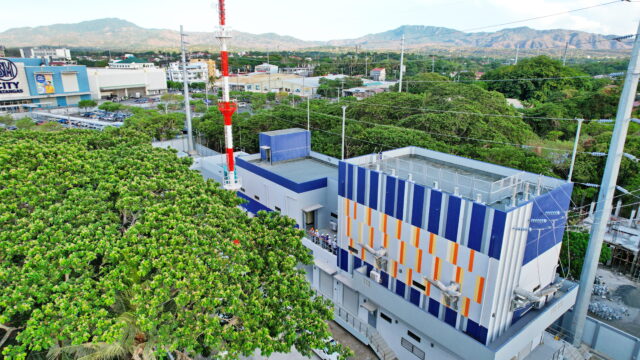(Part 4)
Beyond the term of the present Administration, which will end in June 2028, we must make sure that there will be a sufficient supply of university graduates with knowledge and skills in Reading, Mathematics, and Science at a globally competitive level. Five to 10 years from now, much of what was forecast in the 2022 Roadmap of the information technology and business process management (IT-BPM) industry shall have come to fruition. Technology developments will transform industries, enabling them to become more digitized, more connected and smarter businesses. For example, the healthcare sector, which was the most impacted by the COVID-19 pandemic, is rapidly expanding its focus from post-incident care to more preventive care, thanks to technologies such as wearable sensors, data analytics, and cloud-enabled monitoring. There are new technologies related to energy harvesting, cogeneration, smart grids and smart meters which are redefining the energy industry.
The industry-led industry transformations present both direct and indirect impacts on the IT-BPM sector. For example, driverless cars require large amounts of computing and analytical power at the back end to ensure incident-free operations. Advances in drone technology applications in retail supply chains could result in greater decentralization of e-commerce, delivery management, and analytics, providing greater avenues for outsourcing. Robotics, automation, and cloud computing, among other technologies, are seen to have a direct impact on the IT-BPM sector. In the financial services industry, emerging blockchain technology is expected to become a key differentiator among service providers in the near future.
Among the many technological advances that are already very visible even in a less developed economy like the Philippines, there are four digital trends that stand out:
• Big Data and Analytics (BDA). This refers to a data discovery process using techniques and tools, i.e., mining useful information or insights from huge sets of data (both structured and unstructured) enabled through exponential increases in both computing power and storage capacity.
• Internet-of-Things (IoT): This refers to everyday devices connected to the internet through sensors and computing power to monitor and manage actions, offering greater influence over their environment.
• Automation and Artificial Intelligence: Combining technologies such as Robotics Process Automation (RPA), Artificial Intelligence, and machine learning.
• Cloud computing: Delivering IT services hosted over the internet to transform computer resources into a utility.
As a guide to parents and their senior high school children in choosing their future careers, in addition to the usual choices like engineering, business administration, accounting, medicine, law, education, political science, etc., let me describe briefly these new fields that they can consider. Increasingly, they will see these new specializations listed in the course offerings of some of the leading universities. I hope there will be enough senior high school graduates daring enough to take these non-traditional specializations (I am elated to know that some of my grand-nephews and -nieces have already chosen these careers).
The first is Big Data and Analytics (BDA) which refers to a data discovery process using techniques and tools to mine useful information or insights from voluminous sets of data. The primary goal of BDA is to assist organizations to use data more efficiently to make informed decisions in real time. The process facilitates access to traditionally siloed data sources and uncovers previously inaccessible information. Analytics capabilities uncover patterns and detect anomalies across multiple data streams. This process is done with the use of software algorithms, computer programming and statistical modeling techniques to find valuable and timely correlations, resulting in actionable insights that drive business decisions.
As regards IoT, it is considered a technological revolution which is adding a new dimension to the world’s information and communication technology by embedding short-range mobile transceivers into gadgets. The expanding capabilities of these devices leads to a virtuous cycle of value improvement, making them smart connected devices, or SCD. Convergence of objects and enterprise assets with computing technologies through IoT is helping to bridge the gap between the physical environment and the digital world. IoT has already introduced significant transformation across industries. For example, manufacturing is already one of the top adopters of IoT technologies. Leveraging the power of advanced sensor-embedded connected devices and superfast wireless communication networks, applications such as remote monitoring and control of complex manufacturing processes and assets are already gaining rapid adoption. IoT is also anticipated to obtain significant acceptance in the public sector (smart cities) and in the healthcare (health and wellness) sector.
Then there is intelligent automation which combines technologies such as robotics process automation, artificial intelligence, and machine learning. This technology is transforming the fundamental way of doing business in almost every sector all over the world. The following are the various technologies that fall under this category:
Robotics Process Automation: refers to business process automation using software robots that can automate rule-based and repetitive tasks, basically clerical in nature. Largely used for high volume, high transactional applications across industries.
Machine Learning: automation enabled through self-learning by building software algorithms instead of programmed instructions. It is about unsupervised learning and making machines “intelligent,” providing the basis for “Artificial Intelligence.”
Artificial Intelligence: the ability of computer systems to perform tasks that would ordinarily require human intelligence, for example, decision making and virtual perception. Chat-GPT, for example, is now an example of a widely used form of Artificial Intelligence. Developments in the field of AI have dramatically expanded recently and will continue unabated.
Finally, there is Cloud Computing. The delivery of IT services hosted over the internet is commonly called cloud computing. It consumes computing resources as a utility, rather than building and maintaining infrastructures on premises. The key advantage is that computer resources are measured at a granular level, allowing users to pay for only the resources and workloads they use. The cloud, i.e., as-a-service model, is evolving into an everything-as-a-service approach. This basically refers to everything being sold and consumed as a service. Users may own an IT product, but only pay for the services rendered, bringing immense cost savings and maximizing efficiencies among various other benefits derived.
There are other key technologies which should be watched closely for their impact on implications for the IT-BPM sector. Among these are blockchain technology and augmented reality (AR). The first refers to the maintenance of a continuously growing list of records (called “blocks”) which are secure from tampering and revision by providing a timestamp and a link to a previous block. It was initially developed for bitcoin transactions as a solution to the problem of making a database both secure and not requiring a trusted administrator. So-called “smart contracts” that create invoices that pay themselves when a shipment arrives is one example of the use of blockchain technologies. This technology is likely to find wide application to support financial transactions across various industries. The second (AR) is the real-time super imposition of digital elements on the original environment. These digital elements could be computer generated sensory input such as imagery, sound, and video of GPS data. The surroundings of the user of AR become interactive, where the user can even amend the digital elements. The main objective of AR is to provide the best user experience by enhancing their sensory perception of the environment.
The very brief descriptions of these new technologies that will impact significantly on the IT-BPM industry clearly demonstrate that the skills needed by those who will apply them would require normally the education and training required of college or even masteral degree holders. Industry and Government must work closely with institutes of higher learning such as colleges and universities in developing the appropriate curricula to turn out professionals in these more demanding fields of knowledge.
Except for a few excellent state universities and colleges (SUCs), it is desirable that the task of educating these professionals should be primarily assigned to the private sector. The Government should spend most of its limited budget for education to significantly improve the public schools at the basic education level (the K to 12) which account for 90% of enrollment in our elementary and secondary schools. It is the primary responsibility of the Government to address the serious crisis of learning poverty of our youth, as shown by the very low scores of Filipino students taking international achievement tests in reading, mathematics, and science. This crisis is predominantly a public education problem since products of the private schools at the basic education level have scores in these international achievement tests that are globally competitive.
(To be continued.)
Bernardo M. Villegas has a Ph.D. in Economics from Harvard, is professor emeritus at the University of Asia and the Pacific, and a visiting professor at the IESE Business School in Barcelona, Spain. He was a member of the 1986 Constitutional Commission.
bernardo.villegas@uap.asia












